#Witchy Review
Text
Witchy Review: Witchcraft 101: Pocket Book of Basic Spell Correspondences
I bought this zine from my pal @thevirginwitch

Photo courtesy of Virgo
This won't be a long review because it's a zine and it's a short read but it's so cute!
First and foremost the design: the design is reminiscent of those cutesy journals that some people are blessed to have the patience to make and I love the aesthetic of it.
I also appreciate that on the back, very obviously, Virgo states that these correspondences are their personal correspondences (I'm paraphrasing!). This is great because all too often I see correspondence posts, pages, and books that decide to forego this bit of info and that can get really confusing for new witches who don't know what to take as fact and what to take as personal experience/opinion.
They also have a "how to use this zine" section which encourages the reader to continue their research past the info on the zine. Love the encouragement to pursue education <3 Included in the zine are correspondences relating to:
days of the week
colors
crystals
elements
herbs
Price: They're selling it for a great price, only $6.99 USD on their etsy and they added stickers and a handwritten note to the order, (and even though we're friends, they had no clue it was me who ordered it!). Plus it arrived in a timely manner and in perfect condition!
Would I recommend this? Absolutely! If you're new to witchcraft and you want to 1) get a feel for others' correspondences and practices and 2) help support a wonderful creator then I think you'll enjoy Virgo's zine! <:
Here's a fun photo I took of the zine but the lighting kinda messes with the colors so I put Virgo's photo first lol:

33 notes
·
View notes
Text

I love this bookshelf 🥰
Me as an author and booknerd loves this aesthetic so much. I know it’s not real but imagine if 🥰
#witchcraft#dark academia#witchy#witches#witch aesthetic#witchblr#witch community#witchcore#green witch#witch lair#witch library#witch#witchy vibes#books#bookblr#bookworm#pagan witch#witches home#books and reading#book review#baby witch#beginner witch#wiccablr#wiccalife#pagan wicca#wicca#wiccan#wicca aesthetic#wicca for beginners#eclectic wicca
186 notes
·
View notes
Text
REVIEW: Backwoods Witchcraft by Jake Richards

I feel like Jake Richards's books are pretty popular with folk witches. If you have any interest in Appalachian folk magic, or even American folk magic more generally, you've probably at least heard of this book. Part of why I put off reviewing it for so long is because I feel like there's already been plenty of attention given to it online, so I'll try to make this brief.
Pros:
Definitely authentic Appalachian folk magic. Jake Richards writes about a lot of things I've seen people do or heard people talk about but never seen written anywhere.
This book is really well researched! I'm very impressed by all the references and footnotes.
I love that Richards uses the correct Tsalagi (Cherokee), Gaelige (Irish), and Gaelic (Scottish) words when talking about the cultures that influence Southern folk magic. I also love that he includes pronunciation guides.
Cons:
I didn't finish this book on my first read. It wasn't until I revisited it recently that I actually read to the end. Something about the writing style and the way the book is organized made it a little hard to follow at times, at least for me.
The research is generally good, but there's definitely more detail given for European and Cherokee cultural influences than for African. When talking about European influences, Richards will usually specify the specific country or culture something comes from, but for African influences he just says "African." While this research is harder to do because the slave trade intentionally cut people off from their cultural traditions, other authors like Luisah Teish and Stephanie Rose Bird have shown that we can often trace these African influences back to a specific culture, or at least a region. I would have liked to see the same level of effort put into researching African practices that went into the European ones.
Other Observations:
Christianity is a big part of the author's practice. This is faithful to traditional Appalachian conjure, but just know that it may be triggering if you've experienced religious trauma in a Christian setting. I found this book harder to read than other books on conjure that incorporate Christian elements, and I'm not sure why. Maybe it's because it sounded too similar to the Appalachian church where my abuse happened? Just something to be aware of if this is a tricky topic for you.
Overall Rating: 4/5 stars
#this will definitely be a 5 star book for other people#i am just picky#will definitely be picking up a physical copy tho#book review#book rec#jake richards#backwoods conjure#appalachian folk magic#appalachian folklore#southern folk magic#american folk magic#folk magic#folk witchcraft#witchy books#appalachia#my writing#mine#witchblr#witch#witchcraft
174 notes
·
View notes
Photo

Häxan / Witchcraft Through the Ages (1922), written and directed by Benjamin Christensen
https://uncannyarchive.com/haxan-witchcraft-through-the-ages-1922
#Häxan#Häxan 1922#haxan#haxan Witchcraft Through the Ages#witchcraft films#gothic horror#old films#public domain films#uncanny horror#film gifs#witchy films#horror gifs#film reviews#monochrome films#silent films#old horror#uncanny archive#movie gifs
342 notes
·
View notes
Text
People seem to have faith that magic will work well enough to summon spirits, but not well enough to protect you from them.
Consorting with Spirits - Jason Miller (page 107)
#death witch#folk witch#queer witch#pagan#folk practice#folk practitioner#folk witchcraft#folk magic#death witchcraft#witchblr community#witchblr#witchcraft#witch community#witch blog#book review#witchy books#consorting with spirits#spirit work#jason miller#hearth magic#hearth witch#qoutes#wordsnquotes#protective magic#baby witch#spellwork
180 notes
·
View notes
Text
*book excerpt*
Yue’s gaze fell on Rosen’s chest. ‘Wait, is that blood? Are you alright?’
‘It’s okay, most of it is mine,’ Rosen said, smoothing out her blood-soaked clothes like it was nothing to fret about.
‘Am I supposed to feel reassured?’ Yue said, frowning. ‘What happened? Did the flowers do that?’
‘River stabbed me.’
‘It was an accident!’ River said.
‘It was,’ Rosen said, like it ever needed confirmation.
—The Silver Birds, by Apolline Lucy

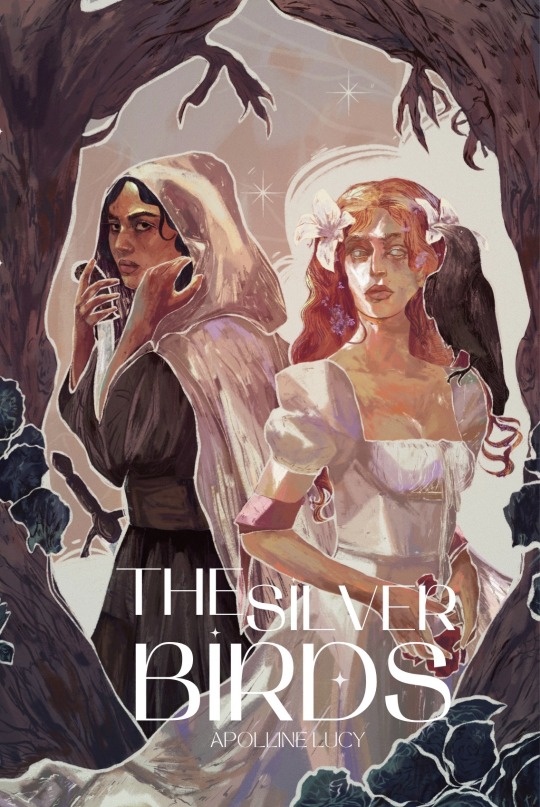
#book exerpt#book quotes#sapphic books#book rec#book recommendations#book review#reading#sapphic#queer books#wlw books#writing#writeblr#booklr#indie author#indie books#fantasy books#sapphic fantasy#book club#bookish#books and reading#the silver birds#queer fantasy#writers supporting writers#authors supporting authors#mine#witchy#witch books#books#lgbt books#bookworm
22 notes
·
View notes
Text

Green is the color of abundance and money 🍀
#bookblr#bookish#booklr#book review#books#books & libraries#books and reading#bookworm#author#indie author#writing prompt#writers and poets#poems on tumblr#writeblr#author aesthetic#new author#old aesthetic#witch aesthetic#witchy aesthetic
38 notes
·
View notes
Text
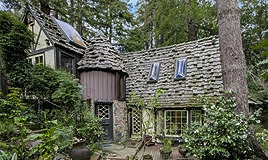
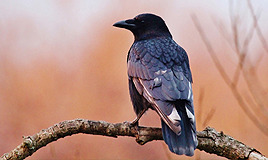
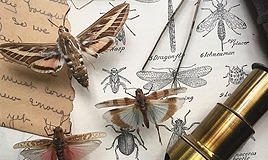
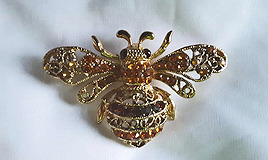


Weyward by Emilia Hart
Published: February 2, 2023
Publisher: HarperCollins
The Author
Emilia Hart is a British-Australian writer. She was born in Sydney and studied English Literature and Law at the University of New South Wales before working as a lawyer in Sydney and London. She is a graduate of Curtis Brown Creative’s Three Month Online Novel Writing Course and was Highly Commended in the 2021 Caledonia Novel Award. Her short fiction has been published in Australia and the UK. Weyward is her debut novel. She lives in London.
˗ˏˋ ´ˎ˗
The Story
In Weyward, the narrative intertwines the lives of three women spanning five centuries. In 2019, Kate seeks solace in Weyward Cottage, escaping from London and her abusive partner. She slowly unravels a mystery hidden within the cottage's history, hinting at secrets from her great aunt's past and the 17th-century witch hunts. In 1619, Altha faces trial for a murder she didn't commit, relying on her unconventional nature magic to defend herself against accusations of witchcraft. Meanwhile, in 1942, Violet feels trapped by societal constraints and the prison of her family's estate, yearning for freedom and the memory of her mother, who was rumored to have gone mad before her death. The only remnants of her mother's existence are a locket marked with a mysterious "W" and the word "weyward" etched into the bedroom's baseboard. This novel masterfully weaves these women's tales together, revealing a compelling narrative of strength across generations and the transformative influence of the natural world.
˗ˏˋ ´ˎ˗
The Vibe: family lineage, nature magic, self discovery, witch trials, feminine strength, betrayal, forging your own path
The Style: historical fiction, magical realism, multiple povs, part epistolary, part narration, emotive
Trigger Warnings: imprisonment, domestic abuse, spousal rape, car accident death, entrapment by pregnancy, emotional abuse, suidical ideation, mention of stillbirth, “hysteria”, hysterectomy, abortion, misogyny
˗ˏˋ ´ˎ˗
The Review
I picked Weyward up on a whim and am so pleased that I did. Historical fiction mixed with magical realism and a dash of incredibly rich writing made it a real pleasure to read. The narrative weaves between three women across five centuries, deftly showcasing the myriad ways in which women demonstrate resilience and bravery under difficult circumstances.
Being totally honest, I often struggle with split narrative timelines in novels. I can’t be the only one who has found themselves bored with one section of a book, willing the boring chapters to end in order to get back to the characters I am invested in… right? Thankfully, Weyward’s leading ladies are all so fabulous and their stories so engaging, that I was invested in each timeline equally. This actually sped up my reading as the story progressed, as I wanted to find out how each character was doing in their timeline more and more desperately. If you want to read a moving story with wonderful characters that emphasizes the transformative power of nature, please pick this up!
Witch. The word slithers from the mouth like a serpent, drips from the tongue as thick and black as tar. We never thought of ourselves as witches, my mother and I. For this was a word invented by men, a word that brings power to those who speak it, not those it describes. A word that builds gallows and pyres, turns breathing women into corpses.
One thing I will say before really digging in to the review, is that there are a lot of trigger warnings for this novel (see above for a summary). Reading through the list, it may seem that this is a tome of sheer doom and gloom, but it actually didn’t feel that way to me. Obviously, a lot of the trigger warnings may be Hard Nos for some people, and that’s totally fair, however I found this story so engaging and the characters so strong, that the TWs didn’t beat me down as much as they could have. Being set across five centuries, this book explores a number of methods by which patriarchal societies abuse women. From the outright cruelties of the 17th Century to the more insidious offences of modern society, there is a lot of violence and misogyny at work here. It can get difficult in parts, but I found myself uplifted by the women’s strength in the end.
Now, I’ve discussed how strong the characters are; let me properly introduce them to you! Kate, living in her 2019 timeline, wants to escape a violent partner and discover the truth about her family. Violet, in 1942 and the midst of the Second World War, wants to escape the societal confines and expectations of femininity and live a life she chooses. Altha in 1619 just wants to survive. I loved them all. I cared about them all. I may have even shed a tear or two over them (and books don’t make me cry super often). I particularly loved Violet and her sheer determination to live her own life. I really appreciated seeing her as a teen from her own perspective, as well as from Kate’s perspective looking back at Violet as an old woman. (I want grow up to be an eccentric old lady with the witchiest house in the world just like her!) The interlacing of their stories is so well conceived, it really feels like you’re seeing a cohesive timeline rather than random sections plonked together.
Perhaps one day, she said, there would be a safer time. When women could walk the earth, shining bright with power, and yet live.
There is so much witchcraft detail in this book, dropped in so sneakily and creatively, I just loved it! All the leading ladies have Witch Marks (which definitely need to be used in witchy stories more frequently), but they’re not overly emphasized… they’re just there and mentioned in passing in various subtle ways. The way the Familiars work is also super cool; not every animal can be a familiar, and they aren’t necessarily easily controlled, but they provide emotional support and do their witches’ bidding when needed. I especially loved the constant presence of the crows, which at first seem wild and dangerous, but eventually become as important to the plot as the leading characters as symbols of power. And I love, love, love how the magic stems so much from the witches’ connection to the natural world. It just felt so right to me.
One notable factor in Weyward for me was how deftly Emilia Hart wove historical facts into the narrative. From the Lancashire Assizes to the Pendle Witch Trials and King James I and his obsession with Witch Hunts, Altha’s timeline felt so based in history as to be almost visceral. This sort of thing really happened to living women. I was especially impressed by the use of the Great Comet of 1618; Hart definitely did her research in order to place her story firmly in the real world, with an additional magical touch.
There was something about us – the Weyward women – that bonded us more tightly with the natural world. We can feel it, she said, the same way we feel rage, sorrow or joy. The animals, the birds, the plants – they let us in, recognising us as one of their own. That is why roots and leaves yield so easily under our fingers, to form tonics that bring comfort and healing. That is why animals welcome our embrace. Why the crows – the ones who carry the sign – watch over us and do our bidding, why their touch brings our abilities into sharpest relief.
Weyward has become one of my favourite reads for 2024, and has 100% got a solid seat in my Top Ten of the Year. It is endlessly impressive to me that is was Emilia Hart’s DEBUT NOVEL. Seriously, my hat is off to her for creating a story that felt so real and so magical at the same time. I will definitely be reading more of her work as it is published. If my recommendation isn’t enough, Weyward also won Goodreads’ Best Historical Fiction title in 2023. And if you buy a physical copy of the book, you get a neat little flip book of a crow flying in the page corners. If all that doesn’t sell it to you, I don’t know what will.
#Weyward#Emilia Hart#book review#bookblr#reading#books#witch fiction#witches#witchy#witchblr#witchy books#witchcore#witchy vibes#witch#witch books
14 notes
·
View notes
Text
ARC reviewers wanted!
Please reblog if you know any avid readers who frequently review books online! Especially if they enjoy novels containing:
- fae
- witches
- angst-free queerness
- romance
- a cozy noblebright mood even amid magical disaster
- '90s cover bands
I seek reviewers and general word-of-mouth-spreaders for my novel Ballad for Jasmine Town, which contains all of the above. (As to the romance and queerness, the main couple is a trans man and a bi woman, in case you prefer to know such details.)
It can be requested on NetGalley and Edelweiss right now, or I could email you an ARC in PDF or epub format.
Here is the publisher page if you’d like to read more about it. (Though distributed by Simon & Schuster, the book is independent-press-published. The publishing world is complicated.)
For those who've read Lava Red Feather Blue: it takes place in the same country and has some overlapping events, but you don't have to read one book to make sense of the other. They are both stand-alones.
Thank you in advance, and I hope it finds some happy readers!

#please reblog#books#queer books#ballad for jasmine town#netgalley#arc#book reviewers#urban fantasy#fae books#witchy books#noblebright#queer fantasy#small presses#trans representation#bi representation#queer representation
14 notes
·
View notes
Text
Hearth & Home Witchcraft by Jennie Blonde (a full book review) 🔥🪵🏠🍞🍅
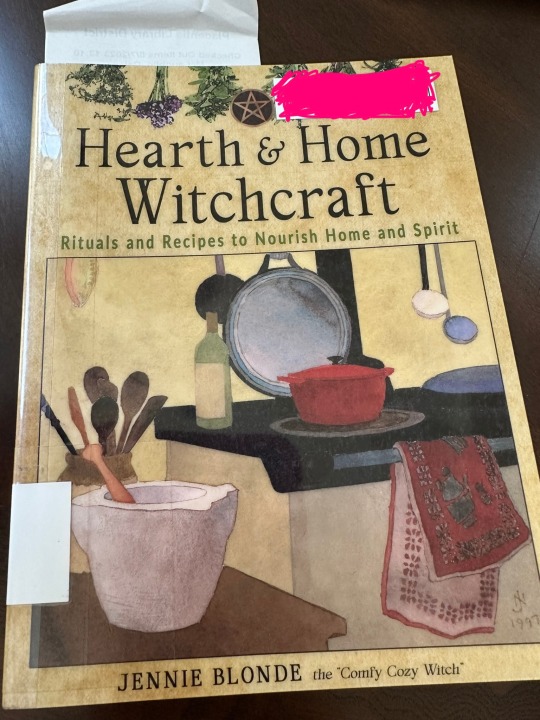
5/5 stars
I love this book for a variety of reasons, one being that it is very low pressure compared to other books on witchcraft that I’ve read. Other books tend to sound preachy and pressure the reader into doing rigorous activities, while this book acknowledges that not everyone can or should do everything listed in the book. As a reader, I felt comforted by the idea that I can select what resonates with my practice from the material, and it wouldn’t feel weird or out of context just because I didn’t do everything else suggested. Jennie does have a somewhat Wiccan influence on her practice, but it doesn't infiltrate the book to the extent where its annoying to non Wiccan practitioners like me. I love that she gives practical ways to use herbs in household cleaning, explaining both magical and mundane properties of very accessible plants and oils. This book was heart warming and full of the childlike wonder it encourages. Its part on meditation was perhaps mislabeled, as what she described was more of a "mindfulness" practice. But either way, mindfulness is something that helped me tremendously with living a happier more present life. I skimmed over a lot of the baking recipes, but I might re-read that section when I have more time to bake later.
-Velvet Rose 🌹
#books#witchy books#bookblr#hearth and home witchcraft by jennie blonde#book review#hearth witchcraft#comfy cozy witch#witchcraft book reviews#house witch#bookshelves#studyblr#booklr
23 notes
·
View notes
Text
Blood Sex Magic by Bri Luna | Book Review of Shadows
An intimate, illustrated collection of spells and stories to infuse our lives with ritual, history, and magic from the visionary artist and infamous witch Bri Luna, founder and creative director of “The Hoodwitch.”
Blood Sex Magic is an invitation and an awakening—a guide toward a life of connection to self and spirit, to the seen and unseen realms, and to magical traditions past and future. Bri…

View On WordPress
#book review#book review of shadows#bri luna#dark feminine#dark goddess#hoodwitch#love magic#magick#santa muerte#sex magic#voluptas#witch#witch reads#Witchcraft#witchy
11 notes
·
View notes
Text
Review of Urban Magick by Diana Rajchel
Took me a while, but I finally finished Urban Magick! ✨
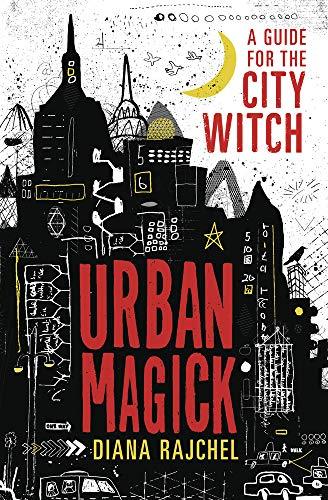
I give it about 3.5 ⭐ / 5 ⭐. Overall, it gave me a bit more hope for being a "witch" in a space that's not-so-nature-oriented. I always personally felt disconnected when folks would talk about being in nature, because I live in the dead-center of Dallas - and this book taught me that I don't necessarily have to be in nature to feel that magic around me, or have powerful tools at my fingertips.
That being said, there were a few outdated concepts in this book (there always seems to be in these Llewellyn publications), but it was a great foundational text that gave me a lot of inspiration and good ideas on how to participate more in my local neighborhood and overarching city.
If you live in a super dense city and want to feel more connected to your craft, and want to learn different ways to incorporate city elements into your craft, I definitely recommend this book! I also recommend this book if spirits, entitities, and thoughtforms are your thing. There is a LOT of speak about city spirits in this book, which is great for someone who's into that sort of thing (I'm personally not)!
#witchcraft#thevirginwitch#witch#witchblr#witchy#witches of tumblr#pagan#city magic#city witchery#urban magic#reading materials#book review#witchcraft books#urban magick#diana rajchel
17 notes
·
View notes
Text
Just to be clear, my issue with people is not that some dislike Strange New Worlds, or the Witcher. But I do think some people take canon too seriously. And often times even misunderstand canon to the point of it being their subjective interpretation of it.
Like, the issues I've seen spouted with these two shows are hardly ever objective and when they are... it's just really not that big of a deal... like, you don't have to dedicate your life to something you dislike. Maybe this is just cause I grew up with comic books, but... it's just really not worth your time to complain about something as trivial as shows.
#Where No Man Has Gone Before and Then Some#star trek#A Bard A Witch A Witcher And A Witchy Princess#witcher#netflix witcher#strange new worlds#I mean - listen - its not that I dont get it#I did the same thing years prior and it was really bad for my mental health#Im not saying dont have criticisms#write a review with all your laments! its super valid and gratifying#but dedicating your life to this is not the answer#mmmm - yes I know i've written this same post before - idk#I hope people will not see it as an insult tho - just think about whether you're life is benefiting from your rage to something#so inconsequential
31 notes
·
View notes
Text
REVIEW: Old Style Conjure by Starr Casas
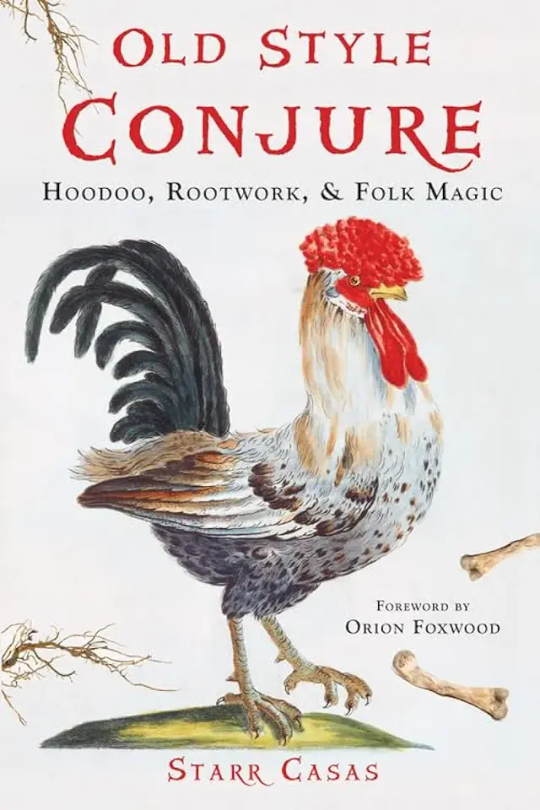
There's some controversy around this book, mostly because Starr Casas is a white woman writing about hoodoo. (Or at least white passing -- Casas does not disclose her ancestry in this book, and I never want to assume based on appearances. Some of the memoir content in this book makes me think she may be from a mixed family.) I avoided this book for a long time because of that controversy, so I want to address it before I move into pros and cons.
When people accuse Casas of cultural appropriation, if they're not talking about her appearance they'll typically bring up this line from a FAQ section in this book: "Q. Can white folks do conjure work? Yes, they can, as long as they honor the ancestors of this work. Those ancestors are the folks who were kidnapped and sold into slavery. They brought this work here and deserve to be honored. And who better to honor them than the white folks who at one time enslaved them?"
I think this line is phrased poorly in a way that makes it easy to take it out of context as giving blanket permission for cultural appropriation. But after reading the entire book, I feel confident that wasn't what Casas was trying to communicate here. Casas is very aware of the legacy of slavery in the South, and she seems to believe very firmly that white folks need to reckon with the atrocity of the slave trade. It's our responsibility to do what we can to make amends for the evils of our ancestors. It's basically the same message other authors, like Aaron Oberon, have phrased better and been praised for.
It is also important to note that Casas isn't claiming to speak for all hoodoo practitioners -- this book is about her family's folk magic tradition, which is influenced by African American practices. She's very clear that other practitioners may do things a different way. She's also very clear about the importance of acknowledging and honoring the African roots of many Southern folk practices, something I personally agree with. The reality is, you'd be hard pressed to find a folk magic tradition in the South with NO African influences, and I appreciate what Casas is trying to do here by explicitly honoring those influences.
(On personal note, struggling to navigate the legacy of white supremacy while honoring Black and indigenous ancestors is something I personally relate to as a white person from a mixed-race family. There are no easy answers here.)
This book, its tone, and the language it uses reminds me a lot of my grandparents. They mean well, and they're remarkably antiracist for older folks in the rural south, but they aren't familiar with all the language and terminology activists use today. They're imperfect in their allyship, but they ARE trying to be allies. It's up to you whether that's a deal breaker for you.
Anyways, with that out of the way, here are my thoughts on the actual book and its content:
Pros:
This is definitely "old style conjure." Everything here feels very authentic and traditional.
I liked the emphasis on using what you have and working with what is available to you. This is not a book that will have you running out to buy that one specific crystal you just have to have for a spell.
I also liked the emphasis on doing things yourself, including making your own oils and powders instead of buying from someone else. This DIY spirit is a big part of southern folk magic as I was taught.
Casas gives very clear, easily followed instructions and does her best to explain the "why" behind what's included in a work.
Great section on throwing bones!
The most comprehensive breakdown of the uses of dirt of any book I've found so far.
This book genuinely contains information I had learned from oral traditions but had not seen written down anywhere.
This book reminded me so much of the women who have taught me what I know of a Southern folk magic. It took me back to sitting at the kitchen table, watching my mentor do an egg cleanse for someone with holy water she had blessed herself.
Cons:
Like I said, reading this book is a lot like a conversation with a Southern grandparent. That wasn't off-putting for me, but I can see how it might bother some readers.
I think Casas is from a slightly warmer climate than where I currently live. Some of the ingredients she uses in works, like olive leaves, are much harder to find in Southern Appalachia. Again, not a huge issue, but just know you'll have to make substitutions if you're not from a very warm climate.
Casas's practice is very heavily focused on working with ancestors and saints, which is not true for every Southern folk magic practitioner. I think she does sometimes give the impression that everyone has to work as closely with ancestors and saints as she does. You don't.
There's definitely a generational difference here with regards to how things like race, class, gender, etc. are discussed. I'm a younger millenial/elder Gen Z, and some of the language used in this book made me cringe a bit. Nothing as bad as slurs or open racism, but more like using outdated language that is considered poor manners but not quite offensive by younger generations.
Overall Rating: 3/5 stars
Would I recommend it?
Despite everything, yes I would. I think there really is some excellent information here, including things that are in danger of being lost. Casas says she wrote this book as a response to the rise of Internet witchcraft and that her goal is to preserve old style folk practices, and she absolutely accomplishes that goal.
This is definitely one I'd recommend checking out from the library before you decide whether to spend money on it, and it isn't without its flaws, but books about pure Southern folk magic with no New Age or neopagan influences are hard to find, so I wanted to spotlight this one. I got this from the library and am glad I did.
(And of course, if you're interested in African American folk magic, you should read books by African American authors. Luisah Teish and Stephanie Rose Bird are two of my personal favs.)
#book review#southern folk magic#southern folk witchcraft#folk magic#conjure#books#witchy books#witch#witchblr#starr casas
35 notes
·
View notes
Text
In case ya'll wanted to know where my rage comes from...here is two reviews for two different "Appalachian Magic" books I was eyeing at buying. I appreciate the first one's brutal honesty! The second one confirmed by fears while also giving it...4 stars???


These both are good examples of read all the reviews before buying a book. If you want to know which books by all means ask but I cannot review as I refuse to buy either one.
#amazon reviews#witchy books#appalachian folk magic#I'm tired of this Grandpa.#Apparently it's too damn bad.
14 notes
·
View notes
Text
-:✧Finding Sources✧:-
"You have brains in your head. You have feet in your shoes. You can steer yourself in any direction you choose. You’re on your own. And you know what you know. You are the guy who’ll decide where to go."
- Dr. Seuss.
The internet is a very large place, and countless times you’ll hear people telling you to do your own research. However, informational literacy is hard enough without even knowing what to look for in a source, let alone how to read it.
What to Look for in a Source
There are a few good things to look for in a credible and reputable source. As can be inferred from the meaning of credible and reputable, a credible source is going to come from someone or something that is worthy of confidence, and a reputable source is going to be one that has a good reputation.
Peer Review in Academia
Peer review is the review of a scientific study, academic paper, or similar article by other members of their field with similar or greater credentials. The paper clears several other people who are actively trying to dash the hopes and dreams of the author by finding flaws with their design and reasoning. I mostly kid, but it is a rigorous process that results in the paper being as high a quality as it can be.
Journals
Academic Journals are periodical publications where the most recent scholarship on a subject are routinely published. Often these are shortened to just “journals” or otherwise known as “scholarly journals”, “scientific journals”, or “peer reviewed Journals” These are peer reviewed before being included, and themselves often a good place to search for information.
If a source you find has been published in a journal, you’re in incredibly safe territory for reliable sources! There might be competing information from other scholars to review on the subject, but not only do these publications often include more reading material on the subject cited within, they are often followed by links to others who have cited them in their own writing on the subject.
University Publications
University Publications are also very safe places to look for sources. While not themselves always a research paper, they are often the culmination of the knowledge that the university has gathered and reflect the most recent scholarship on a topic; least they risk making the university look bad. These are sometimes found on a university’s website, in a professor's online class notes, a textbook, or similar writing linked to someone in the field.
Primary Sources
Primary sources are often the gold standard for knowledge on a subject, assuming you can find something that qualifies. However, these are often hard to untangle as they can be dense, old, difficult to read or understand (and compared to an academic paper that’s saying something!) assuming they’re even in a language the reader understands.
Where to Find Sources
There are a number of places to find good sources. A quick search engine check can do wonders, however they can be a whole mess, and even knowing what you’re looking for, they can make it harder to find good quality in the sheer volume.
Research search engines and open source libraries can make this process much easier. Google Scholar and JSTOR are good options, and if you’re really in a pinch you can look at Wikipedia. Many will tell you up and down that Wikipedia isn’t a credible source, but while there is some truth to that, you can click the numbers on the information you want to see the sources at the bottom of a Wikipedia page. You can check these sources individually to see how you feel about them. Wikipedia also has a “Talk” section where the contributors discuss what should be on each page that sometimes has additional sources or information that was not included.
How to Get a Library Card
Please go to your local library! Most likely the librarian will be able to help you. You can also check the website of your local library to see if you can sign up. Often libraries will either have books on the subjects that interest you, or may even be able to order them for their collection. Libraries have also started providing eBooks and other technological services. If this is an option for you, it is highly suggested!
University Library Access
Students at most universities are automatically enrolled into the university’s library system. These people can careen around a paywall like it’s a sliding glass door between you and your dreams, and they have the keycard. Find them, ask them, it only takes like 2 minutes of their time to download and send you whatever file you can’t get, especially if you link it directly.
Non-Academic Sources If you’re at your wits end and the only options for sources are news articles, blogs, or websites this isn’t necessarily a bad thing. If this is a personal account of someone’s experience this can be a good thing! Take extra care with these and see if you can’t find multiple sources saying the same thing. If something is true, most likely you’re going to find multiple people saying the same thing in different ways. However, if you do find multiple sources, look to make sure they aren’t just citing or copying one another in a hellish circle of plagiarism.
#studyblr#acadamia#sourcing#university#school of roses#information accessibility#witchcraft#magic#witchy#witchblr#basics#witch tips#witches#baby witch#how to find sources#Come check us out on Discord!#Link is in the pinned post!#public libraries#primary sources#peer review#academic journals#research#doing your own research#long post#a second post on how to better /read/ academic journals should be posted later this week!#enjoy
67 notes
·
View notes